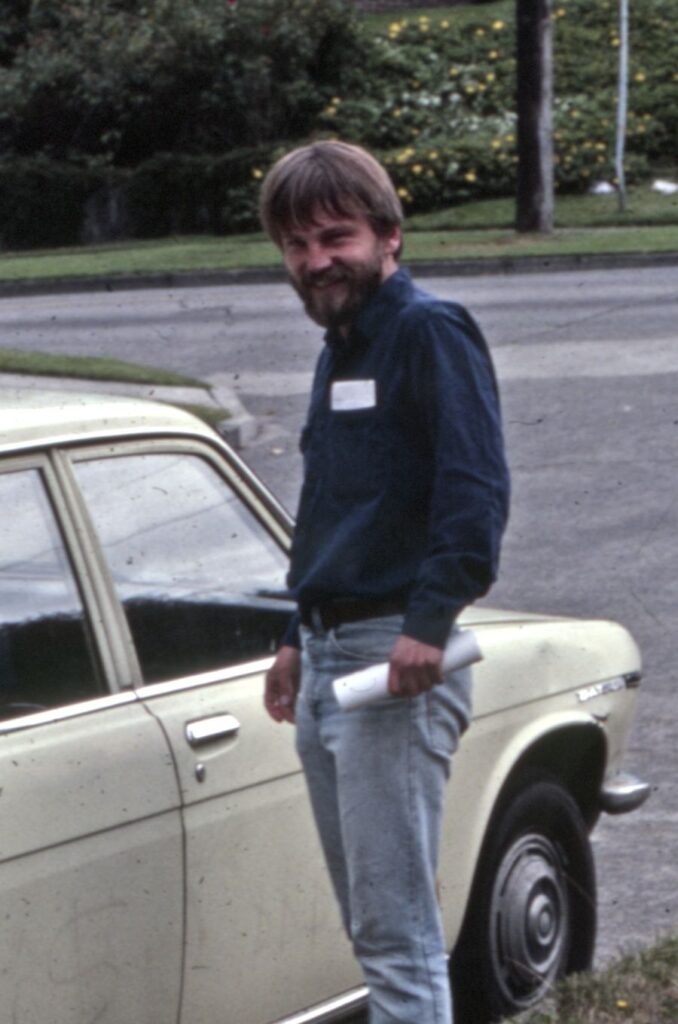ACTIVISM
Fair Electric Rates Now: A David v. Goliath Saga
By Tom Clingman
FERN intervenes at the state Utilities and Transportation Commission
I remember the initial 1978 meeting of the group that became FERN (Fair Electric Rates Now). We had reserved a meeting room at the old Olympia Community Center for a gathering of folks concerned about Puget Power’s investments in nuclear power, and the potential Puget Power rate impacts. The rhythm of kids playing basketball on the nearby courts accompanied our discussion.
Jolene Unsoeld (a political activist and later congresswoman) was there, along with Glen Anderson, Martha Russell, Thad Curtz and several others. I don’t recall if Jim Lazar attended, although he was to provide the group with a vital understanding of complex energy economics. The November 1978 meeting produced an agreement to continue meeting. And the pithy to-the-point name for the new group.

Very soon, we were faced with the beginning of UTC proceedings to consider Puget’s proposed rate increase. The proposal included rate increases to finance Puget’s speculative Skagit nuclear plant (soon to die on the vine after millions of dollars in unwise investment.) And a proposed rate increase for Puget’s share in the WPPSS (Washington Public Power Supply System) planned network of nuclear plants.
Somebody needed to attend the initial UTC hearing and get FERN qualified as an intervenor. As I recall, Hank Henry was available the day of the hearing and offered to attend. So there was Hank sitting alone, facing a table full of Puget attorneys.
The hearing recorded a phrase that became a FERN favorite. After Hank made his request to intervene, the Puget attorney rose in indignation to argue against allowing FERN to participate, stating that Hank was “virtually without portfolio.” Despite this eloquent argument, the UTC allowed FERN to intervene. The phrase got used in some context in every FERN meeting from then on.
But I realized we were virtually without any formal status. There was no need to give Puget more ammunition. So I cranked out Articles of Incorporation for our nonprofit, got a couple names for board members, and hustled up to the Secretary of State’s office. You really felt like you were doing something, going up the stone steps and into the elegant Legislative Building and putting your document on the high counter at the Secretary of State’s office. (Later they moved corporate filings to a sterile building you enter through the parking garage.)
FERN’s core argument was that Puget should invest in the least expensive source first, and that conservation of existing uses could provide significant amounts of additional least-cost electricity. We needed an expert witness. Dr. Russell Beaton of Willamette University was a regional expert on potential conservation.
Here is where the David/Goliath comparison gets intense. Puget had millions to fund banks of attorneys and purchase experts of all kinds. We had virtually no funds at all.
This is what we offered the good Dr. Beaton: A round-trip bus ticket to Olympia, and a bed at somebody’s house. Russ Beaton readily agreed to come up for the UTC hearing. Our little group made a coherent case in 1978 for conservation as the best new source for Puget Power. In 1980, the new Northwest Power Planning Council would begin to focus the entire region on conservation as a source. We still have a long way to go.
I used info on FERN from Jolene Unsoeld’s What Are You Gonna Do About It: Stories of a Hopeless Meddler. It is a great book about her activist life.
We encourage readers to contact us with comments and corrections. Disclaimer
